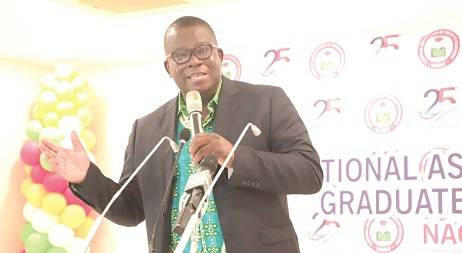The pre-tertiary teacher unions, including the Ghana National Association of Teachers (GNAT), the National Association of Graduate Teachers (NAGRAT), and the Coalition of Concerned Teachers (CCT-Ghana), jointly released a comprehensive document outlining their demands to be integrated into the manifestos of political parties. The 13-page document titled "Demands to the Political Parties on Education Delivery in Ghana for their Consideration into their Election 2024 Manifestos" was signed by Thomas Musah, General Secretary of GNAT, Eric Carbonu, President of NAGRAT, and King Awudu Ali, President of CCT-GH.
The document categorizes the unions' demands into five thematic areas for the upcoming general election: Teacher Unions’ View of Quality Education, School Environment, Free SHS/TVET Policy, Teacher Factor, and Teacher Deployment. Emphasizing education as the cornerstone of societal and national progress, the unions lament the perceived inadequacies in Ghana's education system, stressing the need for greater involvement of educational stakeholders in policy formulation to enhance learning outcomes.
The unions advocate for reforms across various facets of education delivery, including curriculum enhancement, adequate funding, and professional development for teachers. They call for the use of the First Language as the medium of instruction for early education, timely provision of educational resources, depoliticization of programs like the school feeding initiative, and provision of free sanitary pads for female learners.
Regarding the Free SHS/TVET policy, the unions urge for a review to optimize its effectiveness and depoliticization, emphasizing the importance of its alignment with constitutional provisions and supervision by education directorates. Additionally, they demand the full implementation of collective agreements, improved conditions of service, and equitable distribution of teachers to address urban-rural disparities.
The unions stress the importance of teacher motivation, conducive work environments, and incentives for teachers serving in underserved areas or specialized subjects. They advocate for strategic teacher deployment based on school needs, periodic manpower audits, and equitable distribution of teachers between urban and rural areas to rectify imbalances.
In conclusion, the teacher unions articulate a comprehensive set of demands aimed at fostering a more equitable, inclusive, and effective education system in Ghana. Their document serves as a crucial framework for political parties to consider in shaping their education policies for the forthcoming election cycle.




No comments yet
Be the first to share your thoughts!